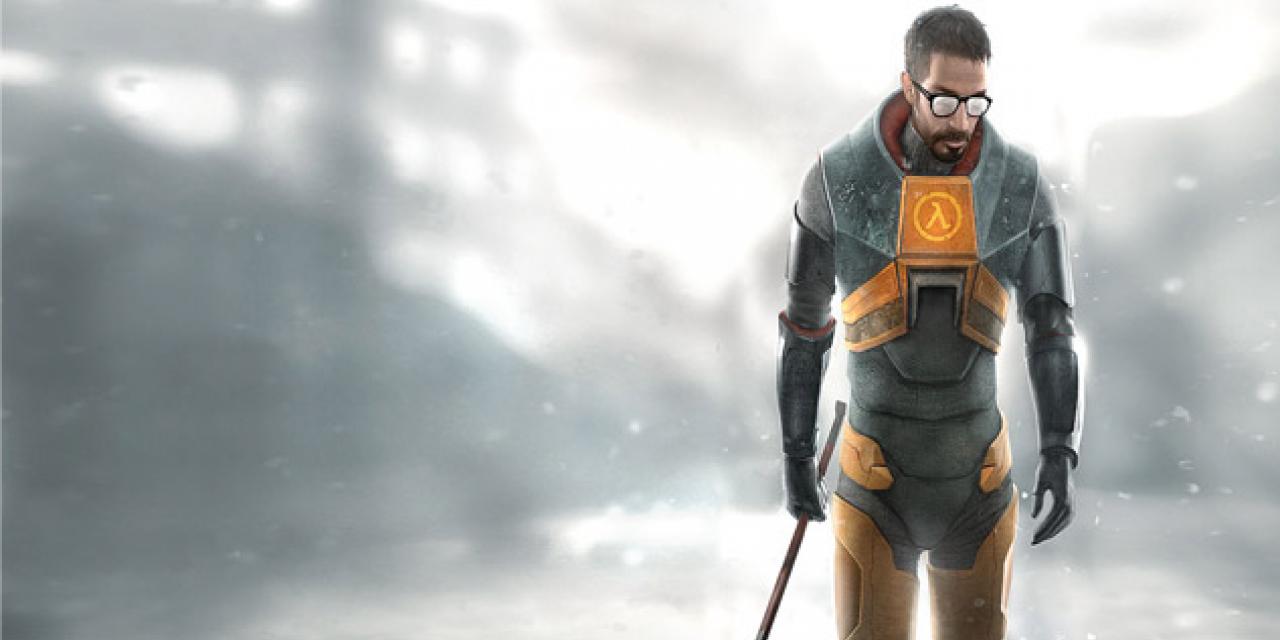
With our recent look into the future of single player gaming and whether it will survive in its current, AAA form, it's also worth addressing the real artistry behind many a game. In the way that any movie, book, painting or musical piece can be considered art in their own right, games bring together aspects from all mediums and place the player in control. Its the best of every world, with more immersion that all of them.
What's not artistic about that?
Take the story. Games like Portal, Deus Ex, System Shock 2, Half Life, Bioshock, single player story driven games offer perhaps some of the most engaging narratives you'll find across any medium. There are some coop titles that offer something similar, but if Gears of War has taught
us anything, it's that well crafted gameplay does not a good story make. While the best shootouts, bullet dodging and action can themselves be artistic - tight controls can be a joy to behold and utilise - the writing has to be good too, to really immerse ourselves into the experience.
While not every player enjoys a game heavy on the plot, those that do will fondly remember those experiences forever. They're the ones that got upset when Aeris died in Final Fantasy VII and have many a point and click game completion notch on their belt. They enjoy the conversation options in
Mass Effect more than the combat, or will rage out loud when a companion character is butchered by the antagonist, even if they're AI controlled.
Of course story isn't the only artistic thing about games, there are the visuals too. Movies like Sin City or Sucker Punch have such unique style that the way it looks can often overshadow other greatness or failures in the film; games can do something similar. Ones like XIII with its cell shading, or the recent Walking Dead with its comic book feel, each have their own unique look.
Lately Indie games have been leading the way in quirky aesthetics that break the mould while remaining truly beautiful in their own way. Sword and Sorcery, Bastion, Super Meat Boy, the list could go on forever. It's difficult to define what makes these games work in terms of how they look, but each of them captures something within the gaming audience that lets them connect with the characters.
As there are abstract painters though, there are also the accurate still lifers; we have them in video games too. Elder Scrolls V: Skyrim is one of the latest, with its sweeping vistas and distant skyline combining with the nature filled forests and plains to create a very lifelike game world. GTA IV
did the same thing but in a city. Then there's Crysis and Far Cry – almost anything using the Crytek engine is likely to be visually immersive.
Audio adds something to the mix too. A good soundtrack can do anything to a gamer, make them fearful, nervous, elated, empowered. Take Amnesia: Dark Descent as a great example. The foes in the game are few and far between, but their footsteps are audible even in the distance. The creak of the castle and the sound of the protagonist's breath make the game what it is: terrifying.
Voice acting needs to be noted as well. Some games do it right, others can ruin the atmosphere with a poorly read line. Portal 2 is a perfect example of great character discussion, even if it is all robotic and always one sided. LA Noire did a pretty good job too. Skyrim not so much in that department, with too often repeated lines and character interaction that clearly has little context consideration.
That said, we couldn't talk sound without considering music, something the fifth Elder Scrolls game did do well with. Amping up at the right moments and dipping down when needed. Similarly so was Left 4 Dead, and Bastion again sounded great, with some beautifully haunting tracks hidden within the gameplay.
Still, ask many people what their favourite game soundtrack is and they'll often – if old enough - take you back to the 16 bit era, a time when limited resources meant developers had to go above and beyond to create something memorable. Echo the Dolphin? Streets of Rage? Sonic the Hedgehog? The Zelda series? If you played these games back in the day, or occasionally revisit them now, you know exactly what we're talking about.
On top of all these artistic features, the fact that you play it yourself is perhaps the most unique aspect of gaming. Instead of being a bystander in a movie or book, or looking at a static painting on a wall, even listening to music, video games at their best offer something these other mediums
cannot possibly offer: first-hand experience.
While some games achieve this far better than others, gaming can offer a level of immersion and artistic expression far and beyond everything else. When truly immersed, you see what the character sees, hear what they hear, are inspired or cowed by the music and can feel what the character is feeling. This isn't empathy like with movies or books, this is real, because you're not putting yourself in their shoes, you are the character.
So the next time you hear an old curmudgeon bashing games as a waste of time, point them in the direction of some of the greats. See if you can share with them what the developers of those games shared with you: a truly unique experience that will stay with you forever.
